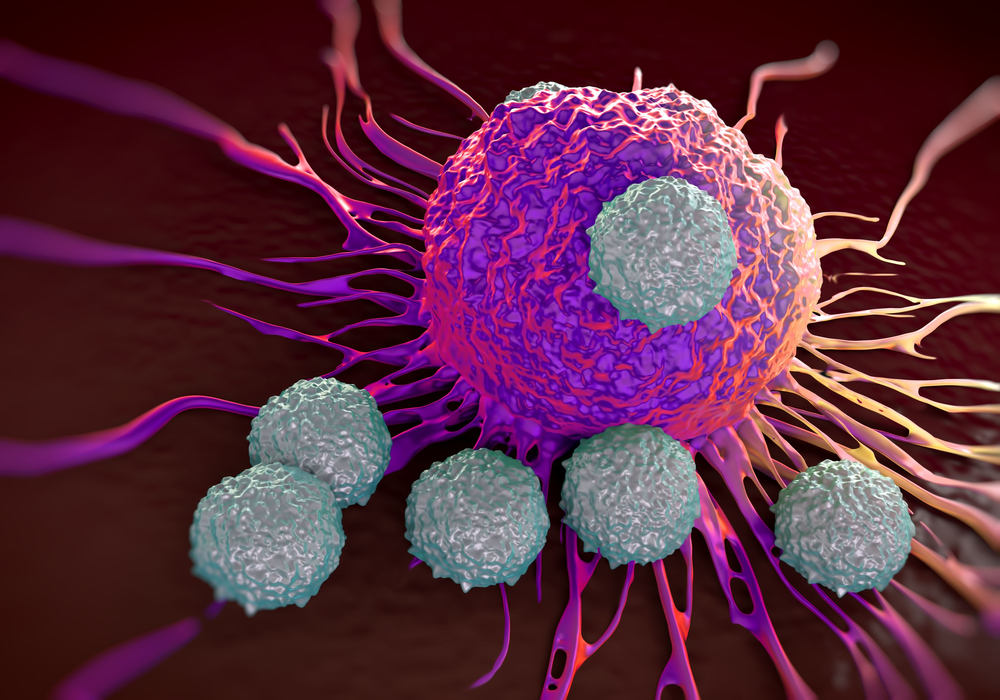New CAR T-cell Therapy Seen to Induce Lasting Remission in Advanced Multiple Myeloma Patients
Written by |

An ongoing Phase 1 trial testing a novel CAR T-cell therapy has shown promising results in relapsed or treatment-resistant (refractory) multiple myeloma patients. The new anti-BCMA therapy, called LCAR-B38M, induced tumor responses in all 35 enrolled patients, and 94 percent experienced complete or near complete durable remissions.
The findings were recently presented by researchers from The Second Affiliated Hospital of Xi’an Jiaotong University in Xi’an, China, at the 2017 American Society of Clinical Oncology (ASCO) Annual Meeting.
The oral presentation was titled “Durable remissions with BCMA-specific chimeric antigen receptor (CAR)-modified T cells in patients with refractory/relapsed multiple myeloma.”
“It appears that with this novel immunotherapy there may be a chance for cure in multiple myeloma, but we will need to follow patients much longer to confirm that,” Wanhong Zhao, MD, PhD, a study author and an associate director of hematology, said in a press release.
Chimeric antigen receptor (CAR) T-cell therapy is a tailored strategy against cancer. It consists in collecting T-cells from the blood of patients and genetically engineer them to produce special receptors, called CARs, at their surface.
CARs are proteins that allow T-cells to recognize a specific protein (antigen) that is highly produced by tumor cells. In the laboratory, these engineered CAR T-cells are then grown into the billions and injected back into the patient, where they can exert their anti-tumor effects.
Several initial trials have shown the high efficiency of CAR T-cell therapy targeting CD19, a B-cell biomarker, against acute lymphoblastic leukemia (ALL) and some types of lymphoma. However, CAR T-cell therapies developed to target biomarkers for other types of cancer has been unsuccessful. This clinical trial is the first for CAR T-cells targeting the B-cell maturation antigen (BCMA), identified in 2004 to have a role in multiple myeloma progression.
This ongoing Phase 1 clinical trial, taking place in China, enrolled 35 patients with relapsed or refractory multiple myeloma, who received three split doses of anti-BCMA CAR T-cells over a week.
The first signs of treatment efficacy came 10 days after initial injection. Within two months of receiving the engineered cells, all 35 patients had responded to the treatment, a 100% objective response rate. Thirty-three patients (94%) had evident clinical remission, deemed as a complete response or very good partial response.
So far, 19 patients were followed for more than four months, 14 of whom achieved a stringent complete response (sCR), thought to be a more profound response than a complete response. One other patient achieved a partial response, and four others met efficacy criteria for a very good partial remission (VgPR).
Importantly, patients who achieved sCR did not relapse. Five of them were followed for more than a year (12–14 months) and all remained in sCR, without detectable cancer cells in the bone marrow, i.e., without evidence of minimal residual disease.
Cytokine release syndrome (CRS), a common but potentially dangerous side effect of immunotherapies, was observed transiently in 85 percent of the patients. However, the majority experienced only mild and manageable symptoms. Only two patients experienced Grade 3 CRS, but recovered following treatment with Actemra (tocilizumab).
“In early 2018 we also plan to launch a similar clinical trial in the United States. Looking ahead, we would also like to explore whether BCMA CAR T-cell therapy benefits patients who are newly diagnosed with multiple myeloma,” Zhao said.



